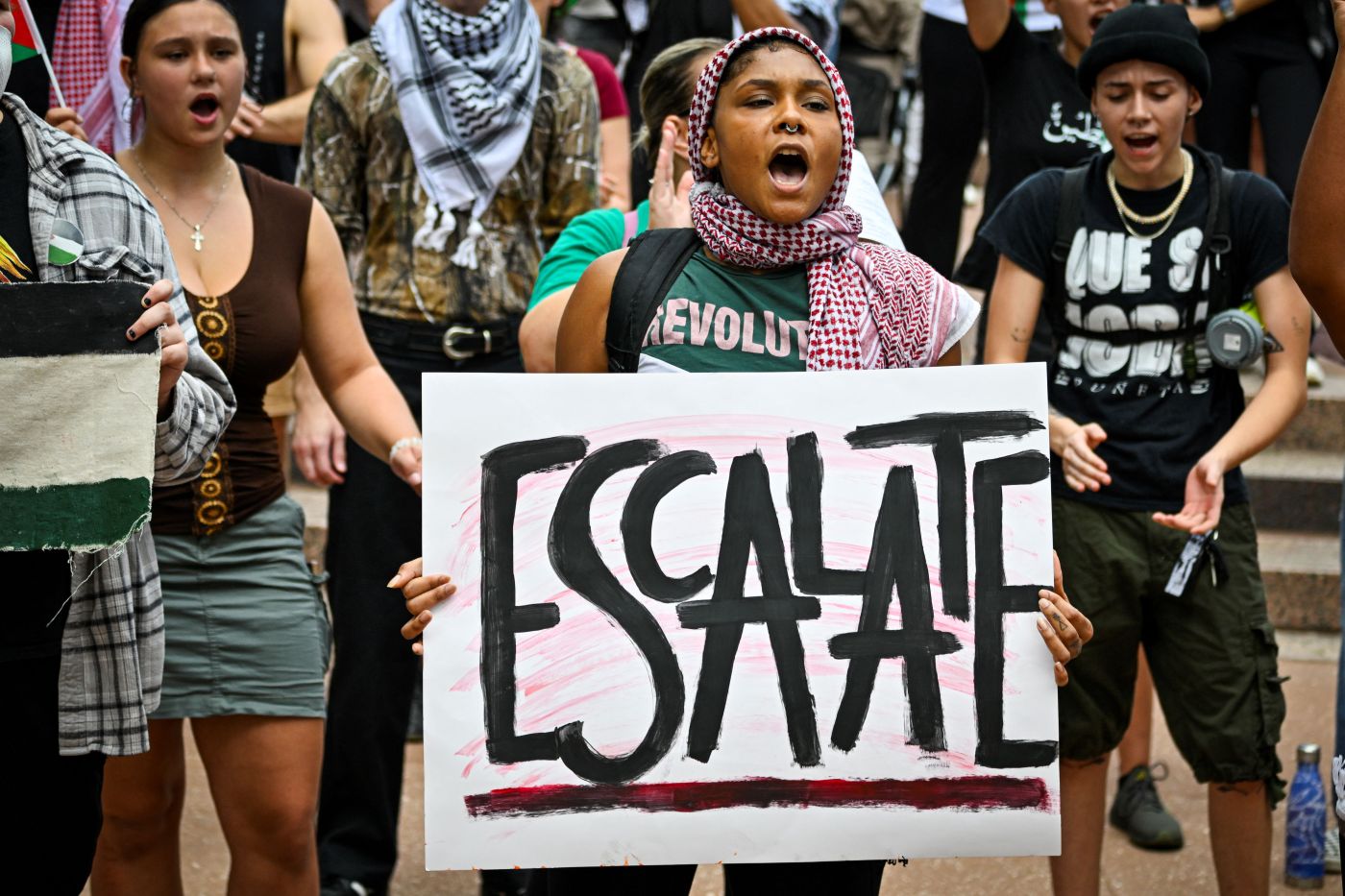
Colb: Fresh waves of hate hit Jews in Oct. 7 aftermath
I am an American Jew, and the grandchild of Holocaust survivors. Like so many Jews in this country, I was raised on stories of unthinkable horror. My grandfather’s parents were rounded up with other Jews from their town and shot dead. His brother was tortured and killed by SS officers. His sister, her husband, and baby were killed. My grandmother’s parents and four brothers were murdered, leaving her the sole surviving member of her family. When news of the atrocities Hamas committed on Oct. 7 began trickling in – the door-to-door slaughter of men, women, children, babies, entire families – my family’s stories flooded my mind.
While I had been lucky enough before Oct. 7 to have experienced only the subtler forms of antisemitism, I was raised on the darkest of what can come of Jew hatred. The unfathomable loss suffered by my grandparents, and the miracle of my own existence by extension of their unlikely survival. These stories are in our blood. Embedded trauma, ready to be activated. It is difficult to describe the experience of hearing what Hamas did that day – unthinkable atrocities not from the past, but here and now, and in the one place that exists so Jews can be safe. But I could barely begin to process that trauma before other feelings took hold – dread and fear. Of the surge in antisemitism that I knew in my bones would follow the worst massacre of Jews since the Holocaust. And of course, it did.
A year has passed since our lives changed forever on Oct. 7, 2023. And while we can never go back to before that horrific day, neither can we move on. We cannot move on while 100+ of our people, including women and children, grandfathers and grandmothers, are held hostage in dark tunnels underground. While the world may have forgotten them, we have not. We wait anxiously for news of the remaining hostages every day. Neither can we move on while the death toll rises in Gaza. We cannot move on until this brutal war ends, and our hostages are released and back home with their families.
We are hostage to this moment. And while we wait, a tsunami of hate sends wave after crushing wave over us. In the three months following Oct. 7, ADL tracked 5,204 antisemitic incidents in the U.S. – more than any entire year on record. These incidents are happening all around us – at our homes, jobs, synagogues, and in our children’s classrooms – interrupting our lives with the painful reminder of just how alive and well this ancient hatred remains. And we are feeling it, daily; it’s impossible to ignore. Our news and social media feeds are flooded with hate. And, of course, many of us have experienced it firsthand. Myself included.
Just a few weeks after Oct, 7, I was about to perform with my band, looking forward to a joyful night of music with friends and family, when hateful antisemitic texts popped up on my phone. They were from a woman whose apartment my family rented with another Jewish family for a long weekend not long before; she apologized, claiming she “accidentally” sent them to me, intending them for another “Sara.” A few months ago, I was walking to a meeting in Boston with a visibly Jewish colleague and we were called out to by a group of young men sitting nearby, something about “Jews” and “money.” Of course, these are just two relatively small incidents. They are nowhere close to the worst of what we see daily in Massachusetts, in New England, and throughout the country. But every one of these hate incidents inflicts pain, and that pain ripples through the Jewish community.
And rather than feeling supported and held close in this deeply painful time, so many Jews report feeling isolated and alone. Their experiences invisible or misunderstood by non-Jewish friends and neighbors. I have felt it myself. It is perhaps not surprising that many of our friends refrain from speaking out. The war and the history leading up to it are immensely complicated. Two peoples with vastly different narratives; decades of complex geopolitics, where every conceivable fact is disputed. But while it may be difficult to find much uncontroversial terrain, it should be easy to recognize that two communities are suffering in this moment; we should be able to hold those two truths at once. Supporting your Jewish friends does not mean dismissing the suffering of Palestinians. That is not the cost of admission. We need you, our friends, to be allies. To stand with us. And to speak out against the avalanche of hate coming at us.
Sara Colb is the deputy director of ADL New England. Prior to ADL, Colb was an Assistant Attorney General at the Massachusetts Attorney General’s Office for nearly eight years, serving in the Civil Rights and Trial Divisions. In these roles she conducted investigations and brought enforcement actions under state civil rights laws, and represented the Commonwealth and its agencies in a variety of affirmative and defensive litigation matters.

